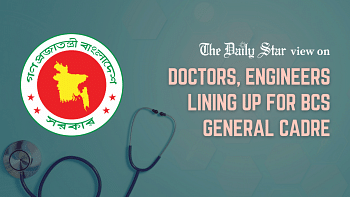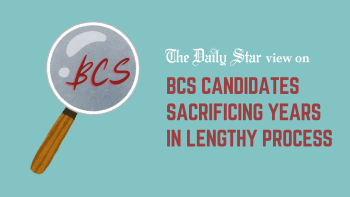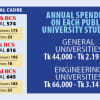Resolve the uncertainty over public job exams

The postponement of one government recruitment exam after another since mid-July has emerged as a big concern, leaving thousands of jobseekers in a state of uncertainty and frustration. According to a report by this daily, this is exacerbating an already existing crisis of jobs as well as backlog of tests, and with no schedule set for these exams, both jobseekers and the authorities in charge seem headed towards an extended period of stagnation. For the students, this is particularly concerning as it directly affects their career prospects and livelihood.
Among the tests postponed so far are those for multiple posts at Petrobangla, Sadharan Bima Corporation, Medical Education and Family Welfare Division, Special Branch of police, Bangladesh Parjatan Corporation, and Palli Bidyut Samity under the Bangladesh Rural Electrification Board. Meanwhile, the Public Service Commission (PSC) postponed the 46th BCS written tests and the 44th BCS viva voce in late August. It also postponed the first half-yearly departmental exams for BCS officers, among others. These deferrals have been generally attributed to the recent political upheaval and government change, floods, and even pressure from underprepared jobseekers. One wonders if the ongoing disruptions within the civil service may also have played a part in delaying recruitments.
Amid the pressure for rescheduling the exams—with a central coordinator of the anti-discrimination student movement recently urging the authorities to take immediate steps—we hope that all issues causing delays will be resolved soon. The PSC has reportedly called a meeting on Monday to discuss this as well as plans for revitalising the commission and addressing concerns about question paper leaks. Under the current reality, however, we must say it is no longer enough to just hold exams. We must also overhaul the entire recruitment system for the civil service.
The current recruitment system, which primarily emphasises rote memorisation of facts, has long been criticised by experts for failing to attract the most capable and innovative minds. Tests should be redesigned in a way that assesses one's broader skillset, including analytical abilities, problem-solving skills, relevant experience and commitment to public service. Now that the quota discrimination has been removed, the government should target modernising the tests so that the civil service engages only the best and brightest.
There are also logistical and exam management issues within the PCS that need to be resolved. Considering the contrasting priorities of the present and our long-term future, we urge the higher authorities to disclose their plans in this regard.


 For all latest news, follow The Daily Star's Google News channel.
For all latest news, follow The Daily Star's Google News channel. 











Comments